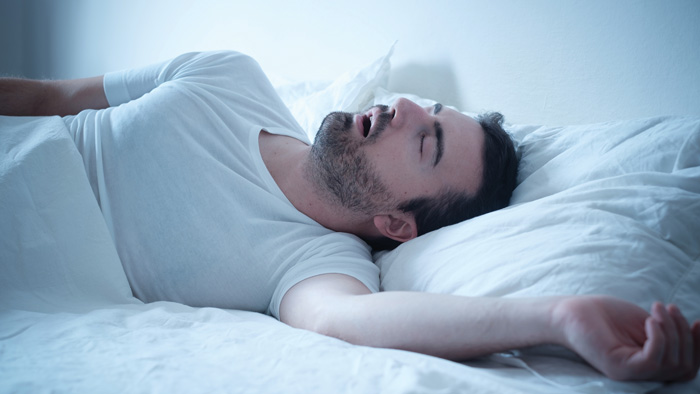
Do you wake up with a very sore or dry throat? Do you occasionally wake up gasping for breath or have frequent headaches, feel sleepy while driving, and constantly fatigued? Then it’s time to visit an oral maxillofacial dental surgeon to rule out the possibility of sleep apnoea.
Sleep apnoea is quite a serious problem and it happens when a person’s sleep is disrupted owing to lack of breath. People with sleep apnoea stops breathing repetitively in their sleep. This can range from a few times to even hundreds. The most dangerous repercussion of this disorder is that the brain and the body gets deprived of oxygen. A study conducted in Australia in 2017 found that 17% of females and 34% of males suffered from sleep apnoea. The numbers have a far serious implications, thus making it important to visit a dentist to rule out sleep apnoea. A dentist is trained to detect any signs and symptoms of sleep apnoea. They play a crucial role in assisting and guiding us through the diagnostic stages of the treatment.
Several researches have been done in understanding the implications of sleep apnoea and there is enough evidence to show that if left untreated sleep apnoea can have a significant impact on one’s health.
Research has suggested that sleep apnoea increases the heart rate and blood pressure levels, putting more stress on the heart. This happens due to the decrease in blood oxygen levels. Not just this, it also increases the level of chemicals in the blood that causes inflammation and decrease in the level of insulin in the body. Such changes can be dangerous to the heart and blood vessels.
If sleep apnoea is not treated it can lead to both hypertension and diabetes and increase the risk of heart diseases like stroke or heart attack, thus putting your overall health at a much higher risk.
The good news is that studies have shown that successful treatment of sleep apnoea can greatly reduce the risks of these related ailments.
How can your dentist help you with sleep apnoea?
Upon evaluation and depending upon your condition your dentist will treat mild to moderate sleep apnoea. There are three kinds of devices that are primarily used for treating patients.
First is the Mandibular Advancement Device. This device helps in opening the airway by moving the mandible or the lower jaw forward. As the jaw moves forward, the collapsible part of your airway is held open by the forward movement of the tongue and other airway muscles. This helps in improving the function and rigidity of the airway and other muscles of the airway.
Second is the Tongue Retaining Device. This works by holding your tongue in the front. This works almost like the Mandibular Advancement Device. Just that in this it controls the position of the tongue instead of the lower jaw.
Lastly is the Continuous Positive Airway Pressure (CPAP). For this therapy your dentist will work directly with a physician to custom make a mask which is worn over the nose and/or mouth as you go to sleep. The mask is connected to a machine that gives regular air flow into the nose. This helps in keeping the airway open to regularise the breathing.
Most of the conditions can be treated with these above-mentioned appliances. However in some cases your dentist might refer you to a physician for a surgical intervention to improve your condition.
As part of your treatment your dentist may also recommend some lifestyle changes to help you combat sleep apnoea. Some of the changes that you can try at home are:
1. Exercise daily and work on losing weight.
2. Quit smoking as it will help in the lung function.
3. Stop alcohol and sleeping pills.
4. Avoid coffee and heavy dinner.
5. Sleep on the side. Sleeping on your back makes it easier for your tongue and other soft tissues to obstruct your airway.
—[email protected]